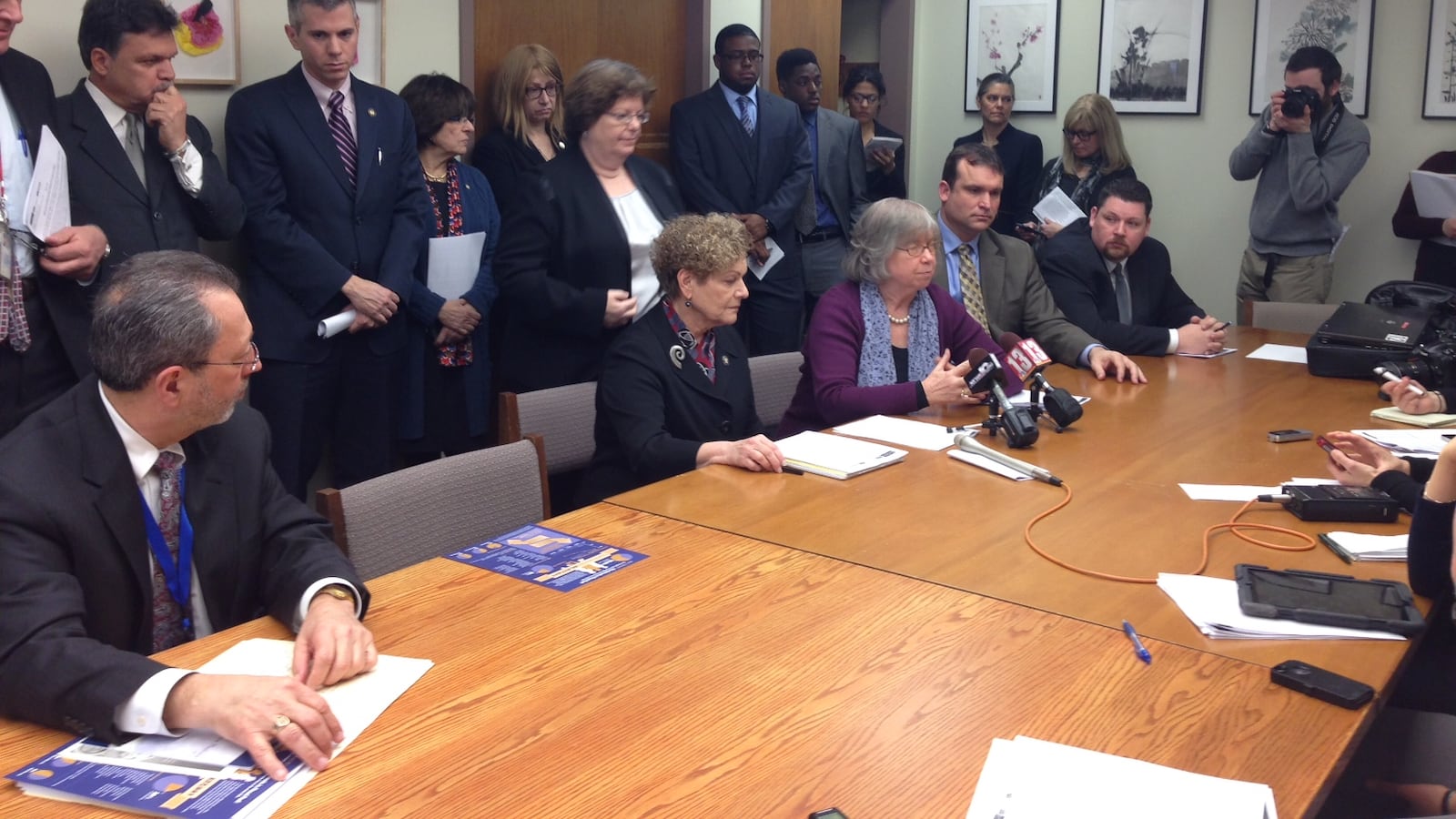ALBANY — State lawmakers, funding advocates, and school district superintendents revisited a top education priority on Monday, urging a big boost in state school aid as budget negotiations heat up.
A recent “fact-finding” tour of 14 cash-strapped districts turned up instances where schools replaced elective classes with study hall periods to fill out the school day, or where Spanish and music instruction had become an either-or proposition. During a press conference to announce the results today, superintendents spoke of large class sizes and cuts to academic intervention for struggling students.
The tour — which did not include New York City schools — was organized by the Alliance for Quality Education, an advocacy group that is calling on Gov. Andrew Cuomo to increase state school aid by $1.9 billion this year.
The extra money would go primarily to the highest-need districts, which AQE says would begin to put New York back on track after the economic recession toward meeting legally mandated funding responsibilities for low-income students.
New York City Mayor Bill de Blasio has said he wants to see state aid increased to the city, where more than 70 percent of students are considered poor, but he has focused most of his public lobbying in Albany on winning the right to raise taxes on the city’s highest earners to pay for pre-kindergarten and after-school programs.
But dozens of Democratic lawmakers, including Assembly Education Chair Catherine Nolan, have called for the $1.9 billion increase, which is more than double what Cuomo proposed in his budget.
The Assembly, which is controlled by Democrats, and Senate, where power is shared between Democrats and Republicans, are preparing budget bills that are scheduled to be voted on March 12. State law requires them to negotiate a final budget with Cuomo by the end of the month, and school funding could wind up playing a role in the deal-making.
The funding issue sits alongside other contentious education policy issues being debated this legislative session, including funding for pre-K, possible changes to the state’s teacher evaluation law, and support for charter schools. Nolan said fixing the way the state funds low-income districts was something “we need to do to make sure that our children have what we want to see for them.”


